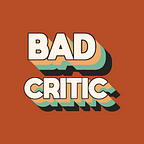The Battle of Algiers (1966)
“Long live Algeria!”
The Battle of Algiers is a pivotal film that is guaranteed to have influenced all of your favourite directors. The film definitively set the bar for cinema verité with its cast of non-actors and use of black & white film grain (mimicking a newsreel). Italian filmmaker Gillo Pontecorvo & screenwriter Franco Solinas sought to tell a story about Algerian independence, but it was only when they partnered with formerly imprisoned FLN member Saadi Yacef that they were able to ground the story in reality. Despite his previous film Kapo earning him international acclaim, Pontecorvo faced pushed back from producers in his own country, who questioned why an Italian wanted to make a story about black people. At Yacef’s invitation, the filmmakers lived in Algiers for months before filming, and his involvement as a producer gave them access to people and locations that would never have been on their radar had they made the film from a western / European perspective. Many of the battles were shot in the very locations they occurred, which sparked a complicated set of emotions among the people still living in the city.
Because many people involved in making this film were heavily involved in previous anti-fascist resistance movements (Pontecorvo himself joined northern Italy’s resistance during WWII, and actor Jean Martin, who plays Col. Mathieu, joined the resistance against the Vichy government in France), they were adamant that war would not be glorified in their film. In a making-of documentary for the Criterion release, Pontecorvo insisted that in war both sides “do horrendous things when they are in battle… one side as much as the other’’. This is the mentality that kept them from romanticizing the violence or lionizing any one individual. Martin was reluctant to place such a dogmatic military leader, since he abhorred the military and everything it represented, but still he ensured that the film criticized the military institution, not individuals. In Battle, when violence explodes, the film will always focus on the people who witness it, whether they are Algerians, French or the military. The frame lingers on their eyes and asks you to contemplate the impact of what has happened. Was it justified? Was it excessive? This story will never answer these questions for you.
The film debuted at the Venice film festival to high praise from other filmmakers (with the exception of French journalists), and won Pontecorvo the Golden Lion award. “Ils nous ont choisi” recounts a proud Yacef in the making-of documentary, shocked that in only 5 years of independence, his country was being recognized on an international stage. The public’s reception, however, was not warm. The memories of war were still fresh in the minds of many. Infighting among the FLN continued the violence in Algeria after 1962. In France, theatres who tried to screen the movie were sabotaged by those still angry that the French government had pardoned Yacef for his actions against the French police during the 1950s. Ultimately the film’s legacy was secured thanks to the organized screenings by various student and film groups long after its release.
The Battle of Algiers has a legacy of being co-opted by just about anyone imaginable. As much as it’s used by leftist groups to educate each other on resistance movements, governments have used the film for counter insurgency research. In his 2016 book Fifty Years of The Battle of Algiers, Sohail Daulatzai details how the FBI screened the film while strategizing against the Black Panther movement, as well as how the Pentagon hosted multiple screenings post 9/11. “[The French military] succeeds tactically, but fails strategically” promised one Pentagon invitation after the 2003 Iraq invasion. “To understand why, come to a rare showing of this film.”
Ultimately, the film leaves it to the viewer to see what they wish, but it is un-deniable that the bloodier the oppression, the more ruthless the uprising. And while this calculation is often considered by oppressors, the force of any retaliation still shocks them. It’s a strange kind of paradox, a dissonance between the state that oppresses and the individuals who carry out its will. It takes a special kind of kind hubris to believe that one’s might will prevail in perpetuity. Though both sides commit unforgivable acts of violence, the key to ending the bloodshed always lies in the hands of the oppressor. They can stop doing violence in a moment. Everyone involved in conflict knows this, and if someone tells you otherwise, it’s propaganda.
